This article has been republished with permission from our partner, Stratfor. The original version was first published in Stratfor’s WORLDVIEW and can be found here.
With a style and pedigree different from that of his modern predecessors, El Salvador’s new president came out swinging against the status quo almost as soon as his inauguration ended on June 1. Nayib Bukele’s supporters see his willingness to break with politics as usual as a sign that El Salvador may finally shake off the lingering vestiges of its 1980-1992 civil war. Until now, every Salvadoran president has been associated with one of the main protagonists in that brutal conflict, the leftist Farabundo Marti National Liberation Front (FMLN) or the conservative Nationalist Republican Alliance (ARENA). Part of Bukele’s appeal is that he represents a break with the past, but change will come at a price in one of the world’s most violent countries. Unbalancing power dynamics too quickly in El Salvador could provoke a violent and destabilizing response.
A Hard Place
El Salvador is a tough place to govern. It is one of the most densely populated countries in the world, and most of its people are poor. The country’s gross domestic product per capita is a paltry $3,900, and fully 29 percent of Salvadorans survive on half that amount. The economy is rooted in resource extraction, which is vulnerable to climate change and environmental degradation. It is also heavily dependent on remittances from overseas, which account for 21.3 percent of GDP. Years of expensive infrastructure development and high levels of corruption have left El Salvador with a debt-to-GDP ratio that averages around $2,550 per person — a high number that will have serious consequences if it remains unchecked.
Though the economics of governance in El Salvador seem daunting, violence is perhaps a more urgent problem. El Salvador has one of the highest murder rates in the world: 50.3 homicides per 100,000 residents in 2018. The country is home to some of the world’s most notorious gangs. When organizations like Mara Salvatrucha (MS-13) and Barrio 18 fight over territory, the resultant violence interrupts development and corrupts politics at every level. Inadequate funding and limited resources hamper the ability of El Salvador’s National Civil Police (PNC) to respond effectively to the threat. Though the PNC has respectable investigating arms, it lacks the confidence of the population. The justice system is in even worse shape. Judges and prosecutors who manage to avoid corruption are often intimidated. The prison system is underfunded and overcrowded, with some facilities operating at 320 percent capacity. Inmates in overcrowded prisons eventually establish their own order, turning what is meant to be a physical manifestation of state power into a secure communications and operations base for the gangs.
Breaking Rocks
Bukele will find it difficult to achieve prosperity for El Salvador while breaking with political tradition. Though he won the presidency with a resounding majority, FMLN and ARENA still dominate the Legislative Assembly, holding a combined 60 of the 84 seats. Bukele will need to act in a cooperative manner, yet so far he shows little inclination to do so. Little more than a week into his presidency, he accused the FMLN of funding gangs to destabilize his government. He followed that explosive statement with another, threatening to “attack the criminality” of the FMLN’s senior officials. Though observers of Salvadoran politics say this is not a new phenomenon, acknowledging it in such a public way is not something a Salvadoran president has done before.
The Legislative Assembly is not the only institution uncomfortable with Bukele’s new approach. Leading families and their associates, so accustomed to wielding influence in El Salvador, have found themselves on the receiving end of termination notices delivered via Twitter. The social media-savvy Bukele used Twitter to announce the firing of 30 relatives and associates of former President Salvador Sanchez Ceren of the FMLN. They are already pushing back, calling the firings an abuse of power and preparing lawsuits that could cause leadership crises in the agencies involved.
More dramatically perhaps, Bukele’s first order of business as president was to order the army — again via Twitter — to remove the name of Col. Domingo Monterrosa from its 3rd Infantry Brigade barracks in San Miguel. Monterrosa was the commander of the forces responsible for the infamous El Mozote massacre during El Salvador’s civil war. That incident claimed the lives of nearly 1,000 villagers accused by the army of sympathizing with FMLN guerillas. The massacre played a central role in the negotiations that ended El Salvador’s civil war because the army insisted on amnesty as a condition for peace. Since then, the army has honored Monterrosa as a hero. Though the army acquiesced to Bukele’s demand, it is unclear what the president’s relationship with the military will be going forward.
Striking the Balance
Without a legislative majority or support from the oligarchy or the army, Bukele will need all the friends he can get if he is to maintain stability in El Salvador. His critics in ARENA and particularly in the FMLN, a party he once belonged to, know how to attack him. They’ve highlighted some of his expensive failures as mayor of San Salvador and pointed out that despite his attacks on cronyism and corruption, Bukele appointed dozens of relatives and associates to take the place of those he’s fired. Though he commands the support of a growing majority of Salvadoran voters, he could quickly lose their adoration if FMLN pays the gangs to destabilize the country as he claims.
Bukele will need all the friends he can get if he is to maintain stability in El Salvador.
Bukele’s combative approach to entrenched interests in El Salvador may win him the support of the voters but it leaves him with few allies in his quest to change his country’s reputation for violence and backwardness. Though he’s burning bridges at home, the right foreign backers may allow him to attract enough investment and maintain enough security to address his serious fiscal and political concerns, but this is far from assured. Recognizing this, he is rearranging some of El Salvador’s traditional alignments in ways that will appeal to U.S. President Donald Trump and his administration. For example, Bukele declined to invite the leaders of Nicaragua, Cuba, Honduras and Venezuela to his inauguration, telling President Nicolas Maduro to “say goodbye” to Venezuela’s alliance with El Salvador. Nevertheless, the Trump administration’s focus on Central American migrants makes the United States a challenging partner.
However, the United States is not the only superpower with interests in the region. China also wields significant economic influence over El Salvador’s foreign policy. After some early suggestions he may reestablish relations with Taiwan, Bukele reaffirmed his country’s “complete” and “established” relations with China on June 27 and said his government would look “wherever we have to look” to develop El Salvador. While it is unclear what caused him to seemingly change his stance, the best Bukele can hope for in these circumstances is to provoke a developmental bidding war between China and the United States — a balance few leaders have been able to manage.
Ultimately, Bukele has a choice to make. The climate in San Salvador is not conducive to establishing populist dominance over his rivals and unless he finds a way to cooperate with his country’s other power brokers, El Salvador is on course for gridlock and pain. If Bukele fails, he may find it difficult to contain a violent reaction against him and his supporters, a consequence that could cause a deterioration in security in the wider region. The extent to which he can manage the balancing act between the will of the people, the vested interests of his still powerful rivals and the desires of global stakeholders to move El Salvador forward may ultimately be the central feature of his presidency.




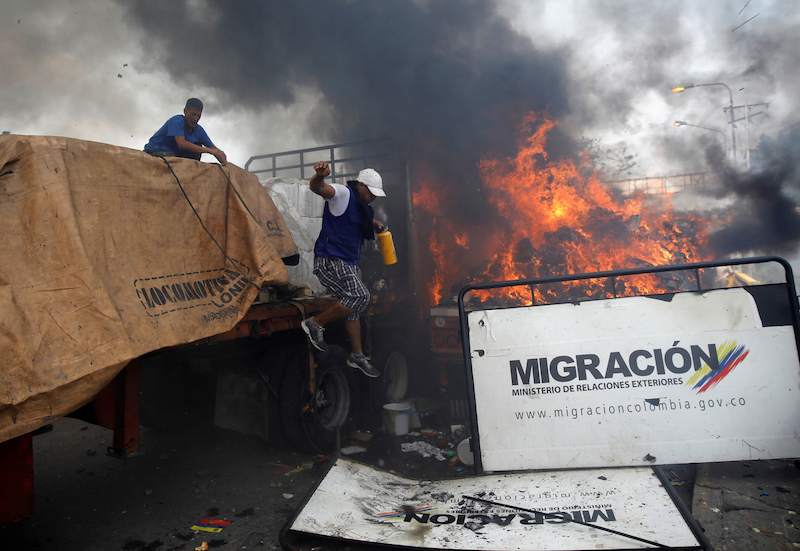


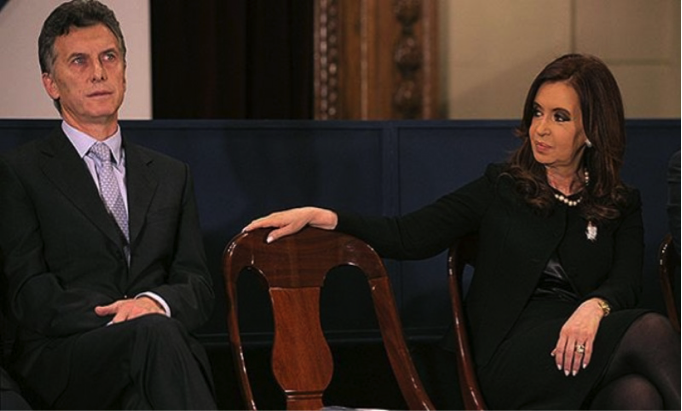
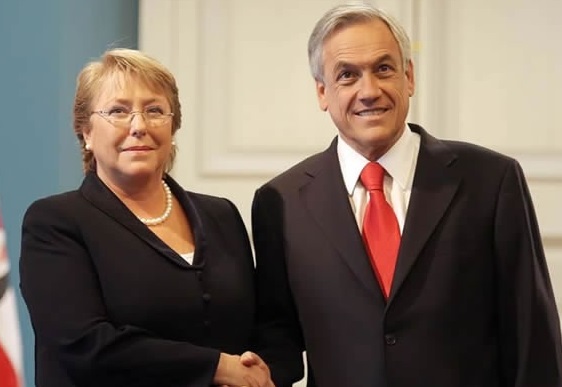
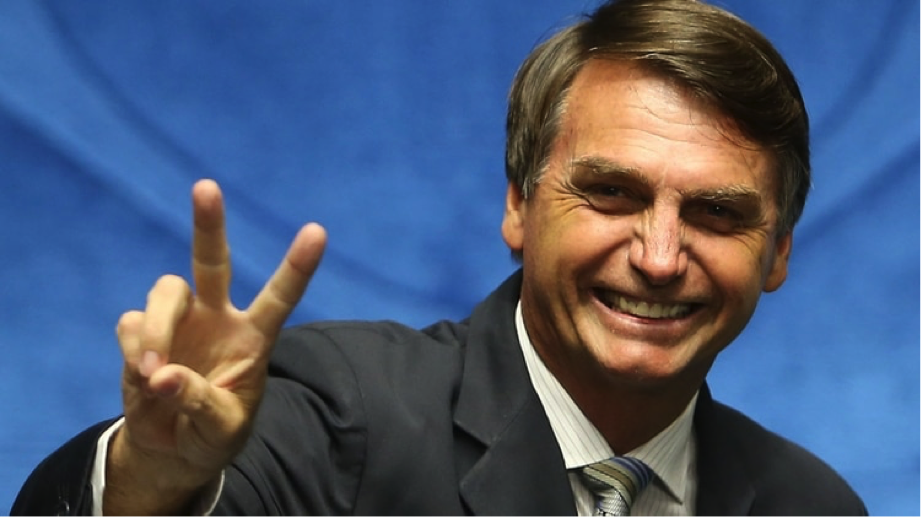
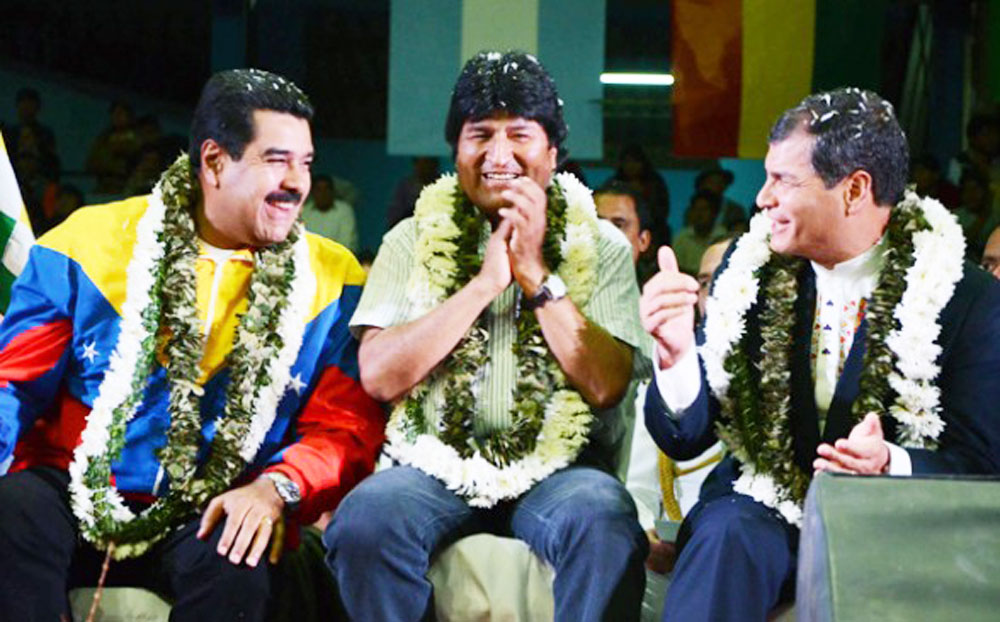
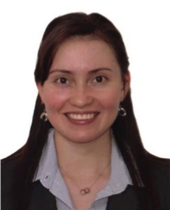 Ligia Lee Guandique is a political analyst living in Guatemala City, Guatemala. She holds a Bachelor’s degree in International Relations and a Master’s degree in Political Science from the Pontifical Catholic University of Chile. Ligia has worked with human rights-based NGOs and
Ligia Lee Guandique is a political analyst living in Guatemala City, Guatemala. She holds a Bachelor’s degree in International Relations and a Master’s degree in Political Science from the Pontifical Catholic University of Chile. Ligia has worked with human rights-based NGOs and